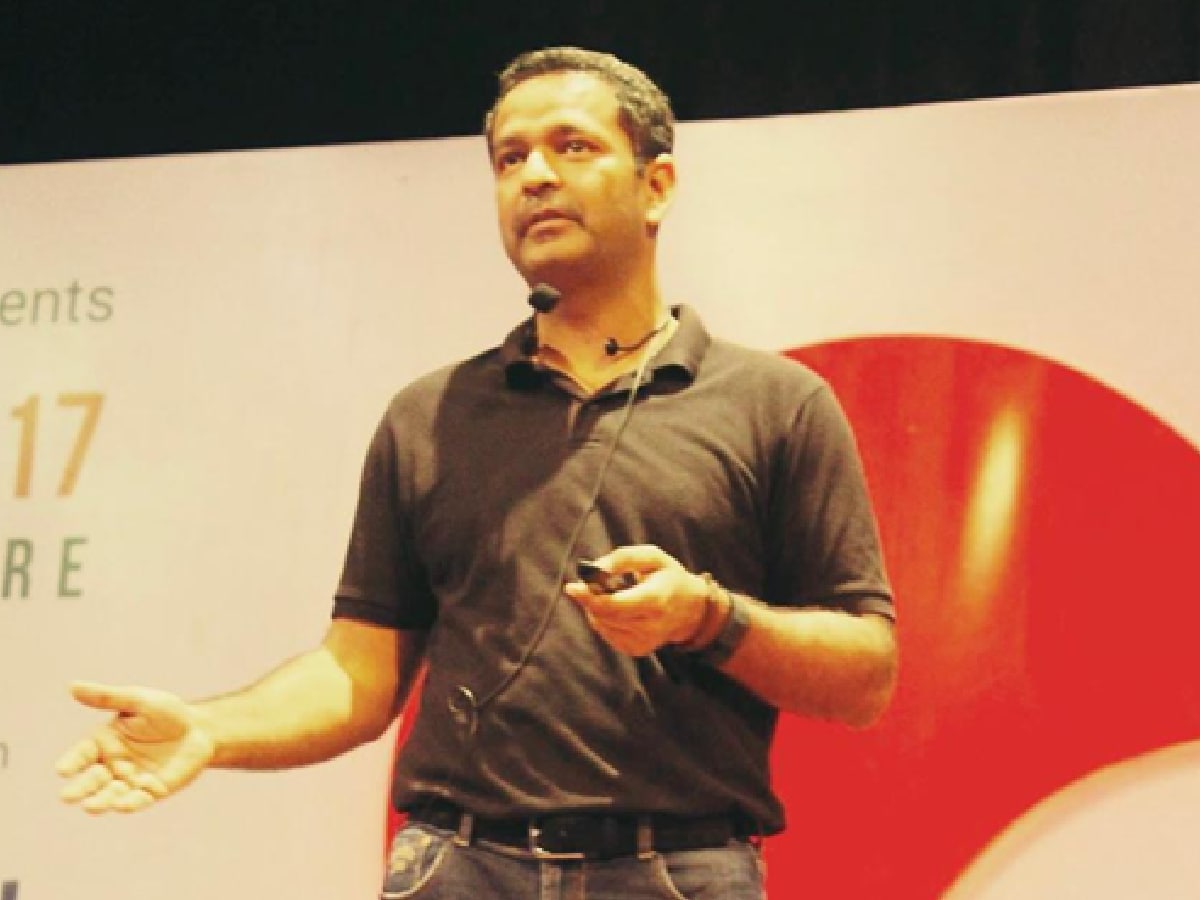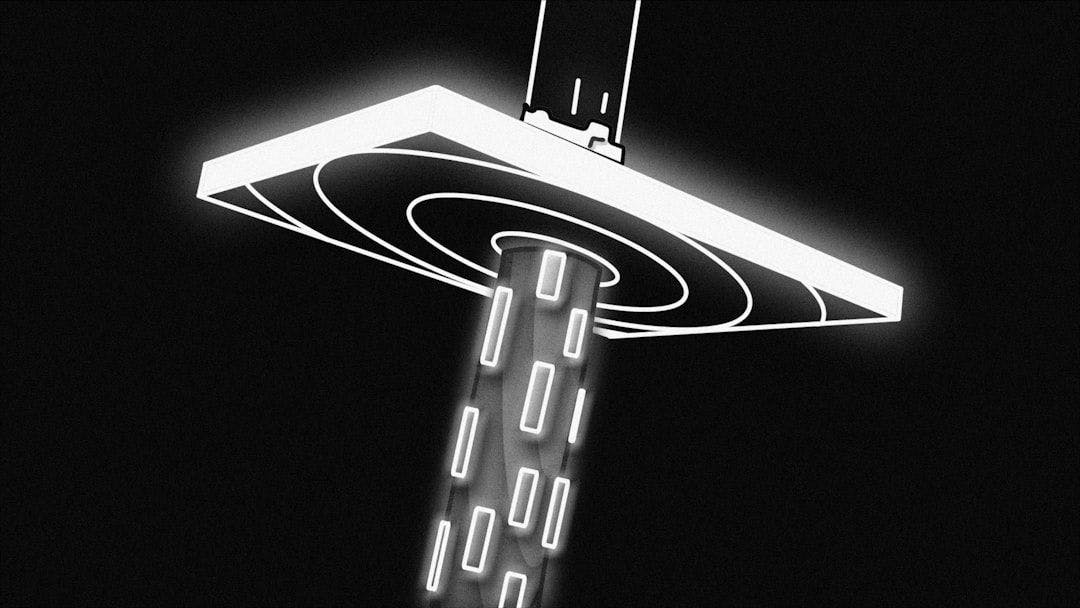You read that right: everything matters.
Not just the big presentations. Not just the important meetings. Not just the moments when all eyes are on you.
Everything.
That casual email you rushed through? It matters. The way you showed up to that “minor” team check-in? It matters. How you handled that “small” client request? It matters.
Here’s what most people get wrong about excellence: they treat it like a switch they can flip on for important moments and off for everything else. They save their best for what they deem worthy of their energy.
But excellence doesn’t work like that. Success doesn’t work like that. Life doesn’t work like that.
Because here’s the truth: The world will ignore your best moments and judge you by your worst ones.
Think about that for a second.
All those times you crushed it in the spotlight? They’re great. But they’re not what defines you. What defines you is how you show up when you think no one’s watching, when the stakes feel low, when it “doesn’t really matter.”
The Selective Effort Trap
Let’s talk about why we fall into this trap in the first place.
Our brains are wired for efficiency. We naturally want to conserve energy for what we consider important. It’s why we have a “game face” – something we put on for moments we deem worthy of our full attention.
This selective excellence might feel smart. Might feel efficient. Might even feel strategic.
It’s not. It’s a trap.
Here’s why:
First, you never actually know which moments are truly important. That quick conversation in the hallway? Could be with someone who remembers it when making a key decision about your future. That “routine” email? Might get forwarded to someone whose opinion of you matters more than you think.
Second, excellence isn’t a switch – it’s a habit. Every time you choose to show up with less than your best, you’re not just affecting that moment. You’re programming your brain to accept mediocrity as an option. You’re creating a pattern of inconsistency that becomes harder and harder to break.
But the biggest reason this trap is so dangerous? It creates a gap between who you are and who you think you are.
You see yourself as the person who crushes the big moments. Who rises to important occasions. Who delivers when it really counts.
But the world? The world sees all of you. Every interaction. Every effort. Every moment you thought didn’t matter.
And here’s what’s fascinating: The higher you climb, the more this matters. Because at the top, everyone is excellent when excellence is expected. What sets people apart is how they show up when it isn’t.
The Truth About Excellence
Let me be clear about something – this isn’t about perfectionism. This isn’t about exhausting yourself trying to be superhuman every second of every day.
This is about understanding a fundamental truth that most people miss: excellence isn’t an event. It’s not something you schedule. It’s not something you can turn on for special occasions.
Excellence is a standard. A baseline. A way of operating.
Think about it like this:
When you selectively choose when to be excellent, you’re actually making thousands of micro-decisions every day:
- Is this moment worth my best effort?
- Does this person deserve my full attention?
- Is this task important enough for my A-game?
Each of these decisions costs you energy. Mental bandwidth. Focus.
And worse? You’re probably getting many of these decisions wrong. Because you’re trying to predict which moments matter, when the reality is: they all do.
Here’s what consistent excellence actually means:
- Answering a routine email with the same care you’d put into a board presentation
- Treating the intern with the same respect you show the CEO
- Maintaining your standards on a random Tuesday afternoon just like you would during a year-end review
But there’s something even more important to understand:
When you believe some moments matter less than others, you create a dangerous permission structure in your mind. You give yourself an out. An excuse. A reason to be less than your best.
And every time you take that out? You’re not just affecting that moment. You’re shaping who you become.
The truth is that you don’t get to be excellent only when you feel like it and still expect to build a reputation for excellence.
You don’t get to choose when your actions matter, because they all matter. They’re all building or eroding your reputation, your capabilities, your character.
Every interaction is a brick in the foundation of who you’re becoming. And foundations don’t work if they’re only solid in the spots you chose to care about.
The Compound Effect of Small Choices
Most people dramatically underestimate the mathematics of consistency.
They understand compound interest when it comes to money. They get that small deposits, made regularly, can grow into something significant.
But they miss how this same principle applies to their actions, their reputation, their impact.
Let me show you how this really works:
Every interaction is a compound deposit:
- A single email response might reach 3-4 people
- A team meeting might influence 10-15 perspectives
- A casual conversation might be shared with dozens more
Now multiply that by:
- Every day you show up
- Every interaction you have
- Every decision you make
- Every effort you give (or don’t give)
The numbers become staggering.
But here’s where it gets really interesting:
Consistency beats intensity every single time. A steady B+ performance, delivered reliably, will outperform sporadic A+ work paired with C- moments.
Why?
Because people make decisions about you based on patterns, not peaks.
They don’t remember that one time you knocked it out of the park nearly as much as they remember the three times you dropped the ball on “small” things.
It’s like building muscle. One intense workout followed by weeks of inactivity won’t get you results. But showing up consistently, even at 80% capacity, will transform you over time.
Your reputation works the same way:
- Every solid effort strengthens it
- Every half-hearted attempt weakens it
- Every interaction either builds or erodes trust
- Every moment either reinforces or undermines your standard
And just like compound interest, the effects accelerate over time. The longer you maintain a consistent standard, the more it compounds. The more it becomes who you are, not just what you do.
But the opposite is also true. Small moments of mediocrity compound just as powerfully. They become patterns. Habits. Identity.
You don’t get to choose which deposits count. They all count.
Why Your “Off” Days Cost More Than You Think
Let’s talk about something that most success advice completely misses: the asymmetric impact of your worst moments.
Here’s a truth that might be uncomfortable: People will forget your best day faster than they’ll forget your worst one.
Think about restaurants for a moment. A place can serve you amazing meals ten times in a row, but what happens when you get one terrible experience? That’s the story you tell. That’s the memory that sticks. That’s the moment that shapes your decision about going back.
Your reputation works exactly the same way.
The world has a negativity bias. It’s not fair, but it’s real:
- One snippy email can erase months of professional communication
- One low-energy meeting can overshadow weeks of high performance
- One dropped ball can make people forget dozens of perfect catches
But it goes deeper than just reputation.
Every time you decide to have an “off” day, you’re not just affecting external perceptions. You’re setting internal precedents:
- You teach yourself that your standards are negotiable
- You prove that your excellence is conditional
- You create evidence that you can’t sustain your best
And here’s the part that really matters: The world doesn’t grade on a curve.
No one thinks:
- “Oh, they’re usually better than this.”
- “This must just be an off day.”
- “I should judge them by their best moments instead.”
Instead, they simply update their understanding of who you are and what you’re capable of. They adjust their expectations downward.
They remember.
Because that’s how human psychology works. We’re pattern-recognition machines. We look for consistency. We notice breaks in that consistency even more.
And in a hyperconnected world? These moments don’t stay in their lanes:
- That “unimportant” interaction becomes a story someone tells
- That “minor” mistake becomes part of your track record
- That “off” day becomes a data point in how people evaluate you
Your reputation isn’t built on your best days. It’s built on your standard days, and destroyed by your worst ones.
The Energy Paradox
Here’s something that might seem counterintuitive: Maintaining one high standard actually requires less energy than constantly switching between different levels of effort.
Most people have it backwards. They think saving their energy for “important” moments is efficient. Strategic. Smart.
It’s not. It’s exhausting.
Every time you decide to dial back your effort, here’s what’s actually happening:
- You’re forcing your brain to make another decision
- You’re breaking your momentum
- You’re creating internal conflict
- You’re adding cognitive load
Think about driving a car. What takes more energy:
- Maintaining a steady speed on the highway
- Constantly accelerating and braking
The same principle applies to your performance.
When you maintain one standard, you create momentum. Flow. Rhythm. You don’t waste energy deciding how much effort to give – you just give your standard effort. Every time.
This is what people miss about consistency: it’s not about being “on” all the time. It’s about removing the exhausting task of constantly switching between different versions of yourself.
Because here’s what happens when you have one standard:
- You stop wasting energy on deciding when to care
- You eliminate the friction of context switching
- You build sustainable momentum
- You create clarity in your mind and others’ expectations
But there’s an even bigger energy saving: emotional bandwidth.
When you know you’re giving your consistent best, you don’t waste energy on:
- Second-guessing your effort
- Wondering if you should have done more
- Worrying about which version of you will show up
- Managing other people’s shifting expectations
This is the paradox: What looks like more effort on the surface actually requires less energy overall.
Building Your Always-On System
Let’s get practical. Because understanding why everything matters is one thing. Building a system to actually live that truth is another.
First, redefine what “giving your all” means. This isn’t about running at 100% intensity every second. It’s about finding your sustainable excellent – that level of performance you can maintain day in, day out, regardless of circumstances.
Think of it like this:
- Your sustainable baseline might be 80% of your maximum
- That’s fine – as long as it’s consistent
- Better to be reliably good than occasionally great
The Energy Management Framework
Map Your Natural Rhythms
- Track when you naturally perform best
- Schedule your most demanding tasks during these peaks
- Build recovery periods into your day
Create Non-Negotiable Standards
- Define your minimum acceptable level for every type of task
- Write these standards down
- Make them specific and measurable
The Unexpected Rewards
What actually happens when you start treating everything as important (and you have your energy and standards dialed in, to match).
First, decision fatigue disappears. When everything matters, you stop wasting mental energy on questions like:
- Should I give this my full attention?
- Is this worth my best effort?
- How much should I care about this?
The answer is always the same: This matters. Do it right.
Second, your confidence transforms. Not the fragile confidence that comes from occasional wins, but the unshakeable kind that comes from knowing:
- You don’t have weak moments
- Your worst is still professional
- Your baseline is better than most people’s best
Third, opportunities start finding you. Because here’s what people don’t tell you about success: It’s attracted to consistency more than brilliance.
- Reliability opens more doors than occasional excellence
- Trust builds faster when people know what to expect
- Opportunities come from patterns, not peaks
But the biggest reward? Peace of mind.
When you stop categorizing moments as important or unimportant, you stop living in fear of:
- Being caught off-guard
- Having an “off” day at the wrong time
- Being judged for your worst moments
You know that no matter what situation you’re in:
- Your standard is your standard
- Your effort is consistent
- Your performance is reliable
This creates a kind of freedom most people never experience – the freedom of knowing you’re always showing up as your best self, not just when you think it counts.
Making the Shift
Let’s be real about what it takes to make this transition. Because moving from selective excellence to consistent standards isn’t just flipping a switch.
Take the Next 24 Hours and Track:
- When you catch yourself saying “this isn’t important”
- Where you notice your energy dropping
- Which tasks you naturally deprioritize
- What moments you treat as “minor”
This isn’t about judgment. It’s about awareness.
Start with what you can actually sustain:
- If you can’t maintain it for a month, it’s not your baseline
- If it depends on perfect conditions, it’s not your baseline
- If it requires superhuman effort, it’s not your baseline
Your baseline needs to be:
- Realistic enough to maintain
- High enough to matter
- Clear enough to measure
The Core Truth
Because here’s what matters: The shift isn’t about being perfect. It’s about being consistently good enough that your worst moments are still professional.
And remember:
- Your worst = Your baseline
- Your baseline = Your brand
- Your brand = Your future
Pull out your calendar right now. Look at today’s schedule. Every single item on it – from the “big” presentation to the “quick” check-in – gets your full attention. No more sorting moments into important and unimportant.
Your standard for the next 24 hours:
- Every email gets your best effort
- Every interaction gets your full presence
- Every task gets your complete focus
Because here’s the truth:
- This isn’t about becoming superhuman
- This isn’t about being perfect
- This isn’t even about being the best
It’s about being reliable. Consistent. Professional.
Every single time.
Because everything matters. Every moment counts. Every effort adds up.
And your next moment? It starts now.
What are you going to do with it?
Scott









